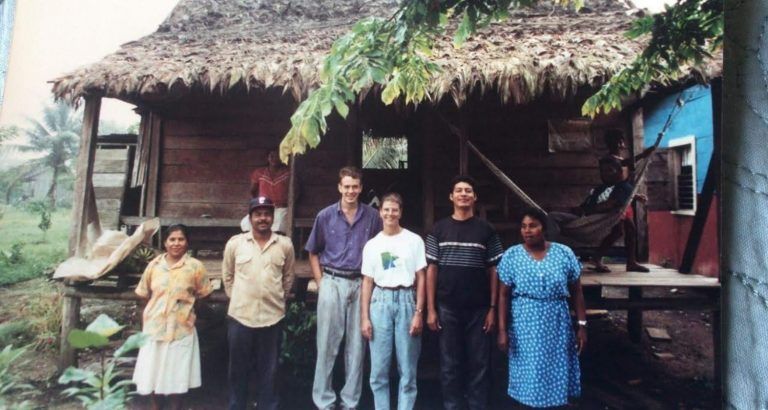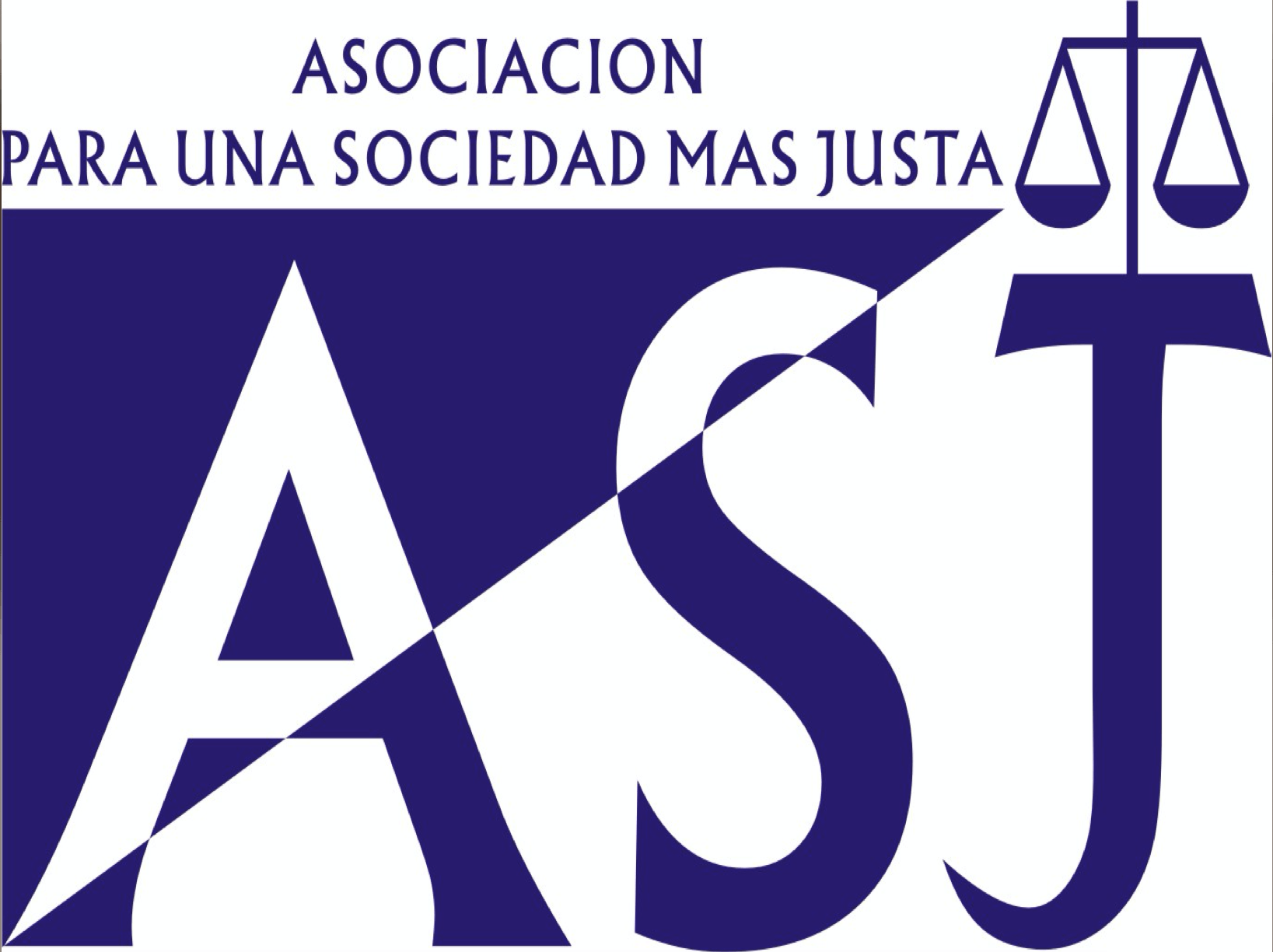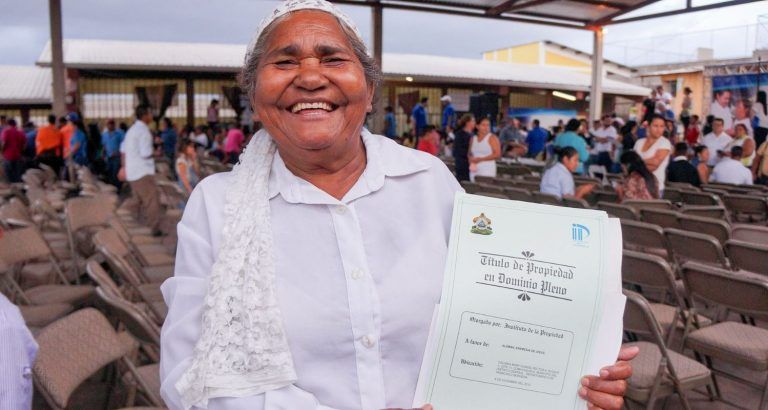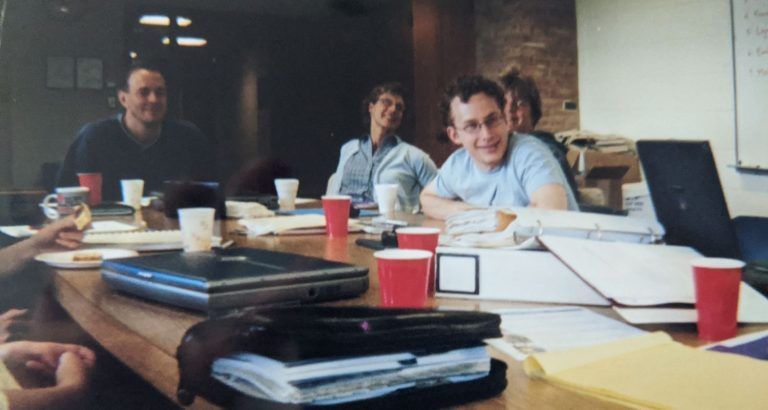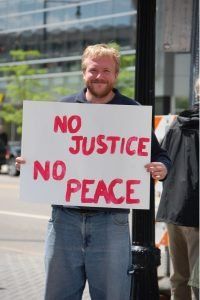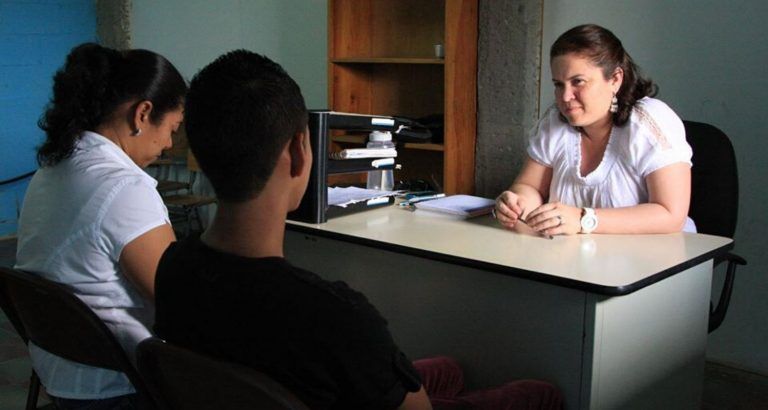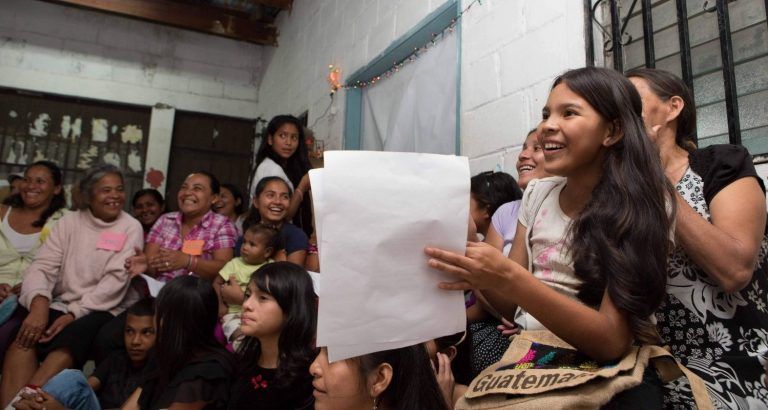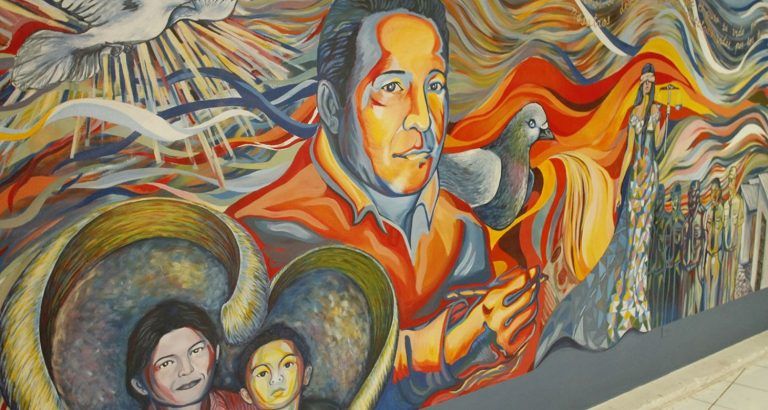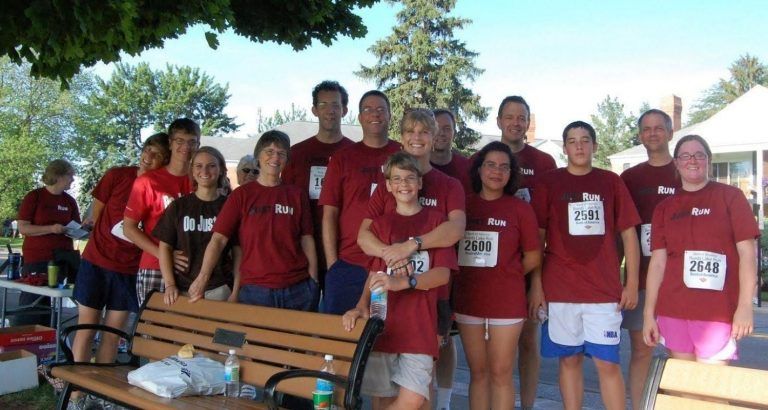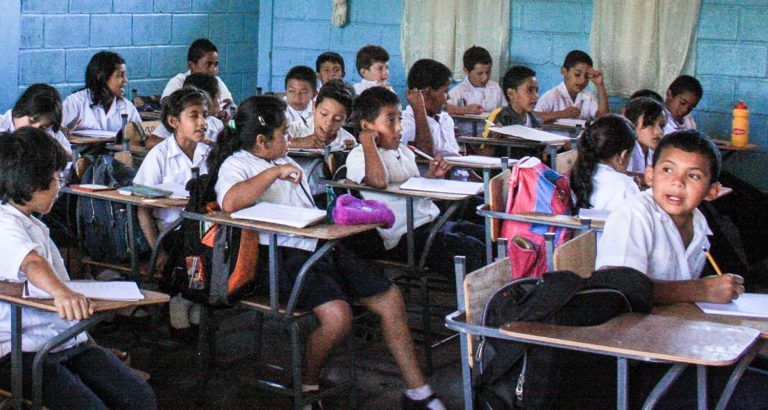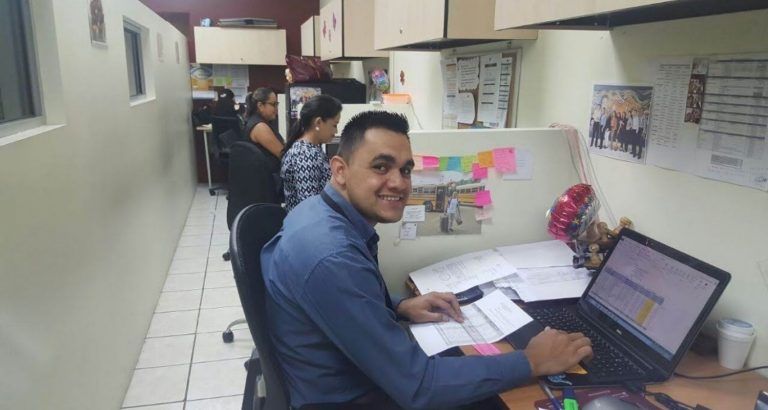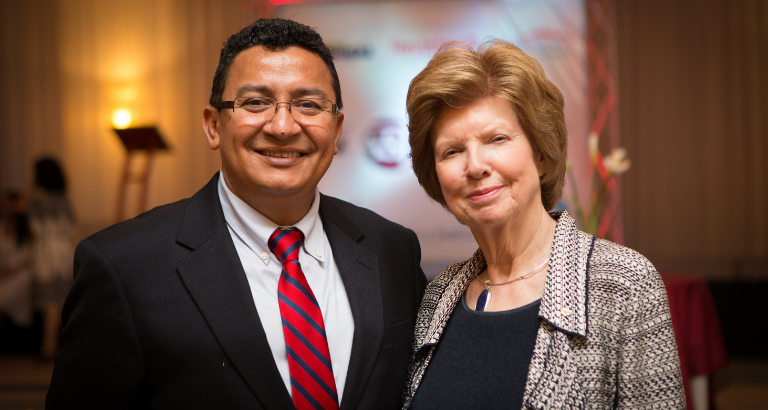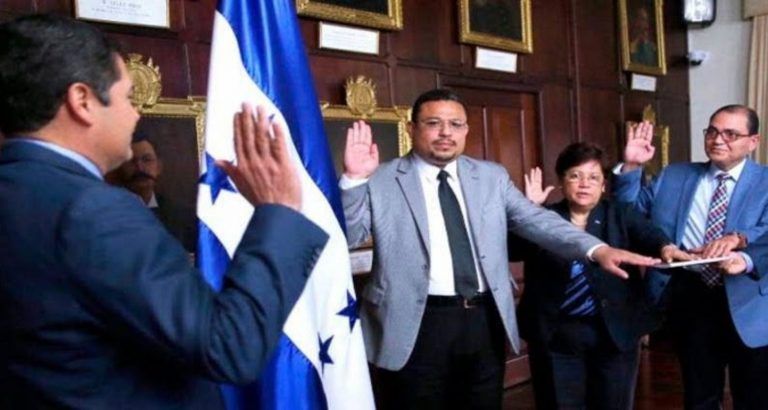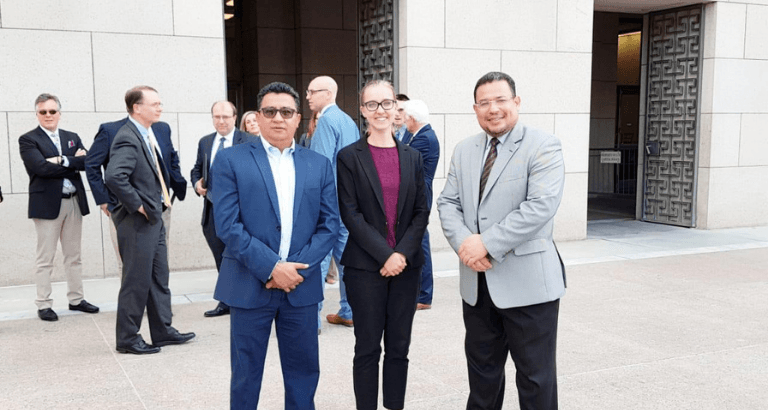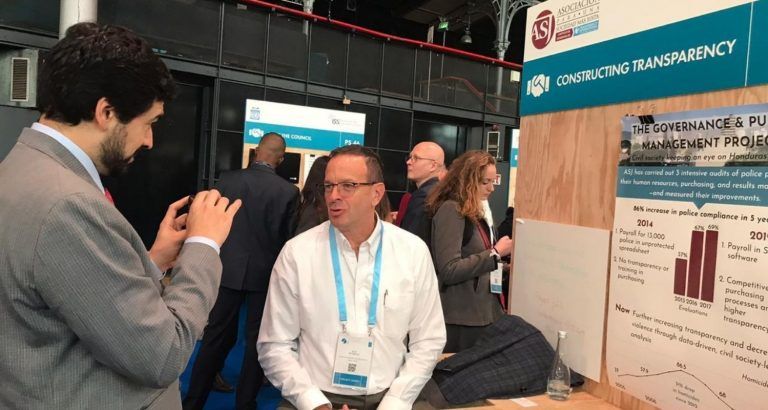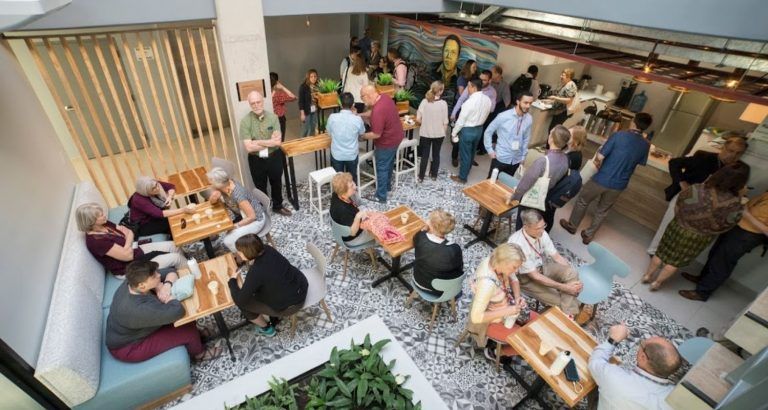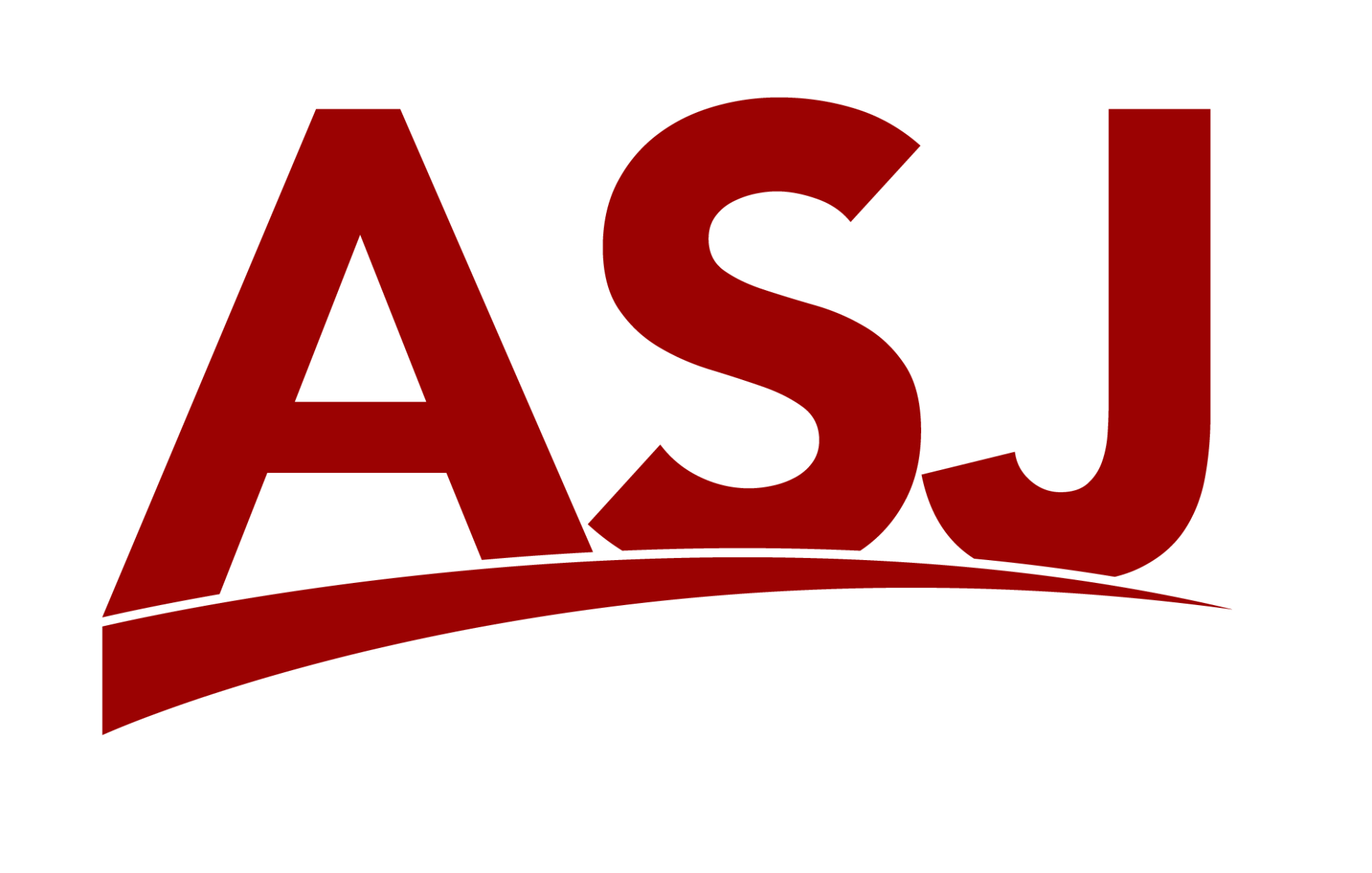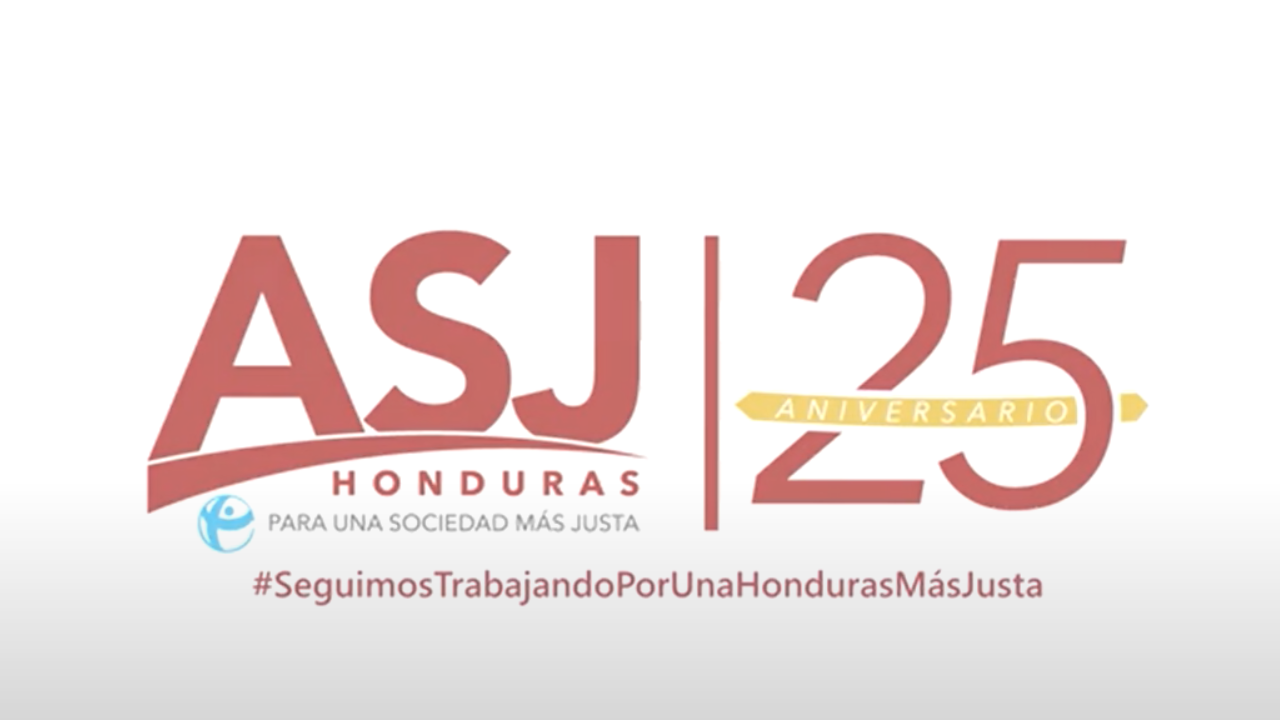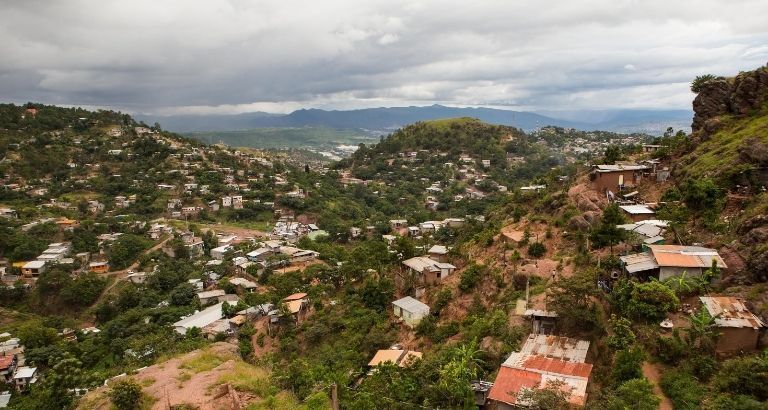ASJ-Honduras, or la Asociación para una Sociedad Más Justa (which translates to the Association for a More Just Society in English), is founded by a group of North Americans and Hondurans who have a collective vision of justice for the poor and oppressed. After years of working in development, they realized that their efforts were not enough because too many laws, policies, and systems in Honduras did not respect the needs and rights of the poor. ASJ starts with just one part-time employee working out of a garage and the founders’ volunteered services.
We have a new name! We are ASJ, and we are for a more just society. Learn more >
We are ASJ, and we are for a more just society. Read more about our partnership>
OUR HISTORY
Securing Land Rights
2000
ASJ starts by asking what issues most affect Hondurans, and they find a lack of legal systems to protect people. Indigenous groups seeking justice invite ASJ to help them in their push for land titles. ASJ brings cases to court and helps communities secure their land in the face of unjust land seizure. They also start by offering training and legal support to poor communities where residents lack land titles. They are instrumental in Honduras passing a completely revamped Property law that eliminates many of the roadblocks the poor faced in getting land titles. To date, more than 70,000 land titles have been granted to vulnerable residents.
A Partnership is Born
2000
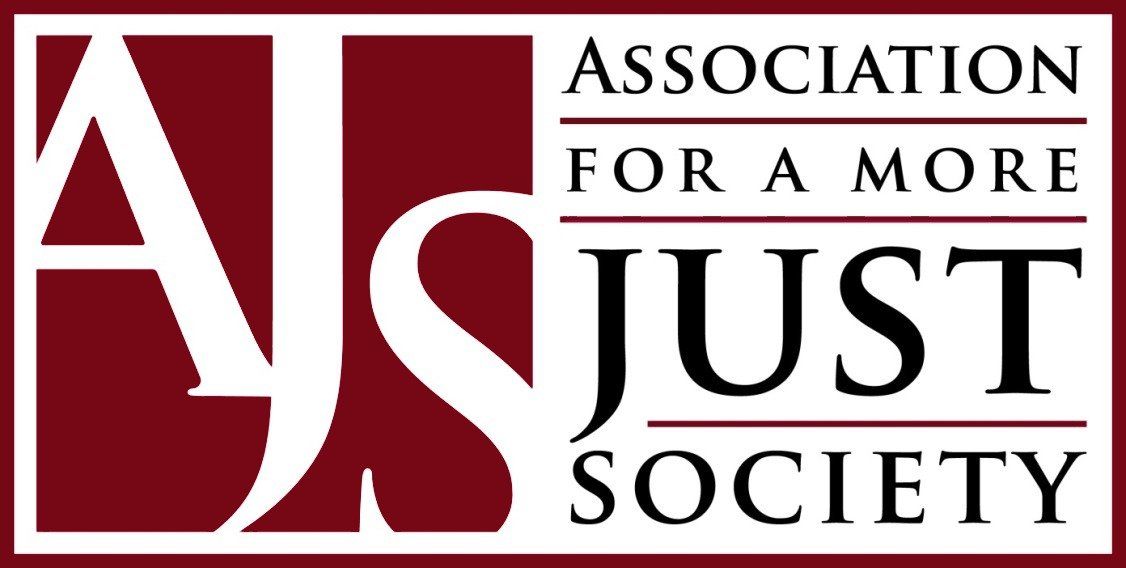
As people from around the globe become interested in our work in Honduras, supporters in the U.S. decide to form a sister organization. Our organizations become known as ASJ in Spanish and AJS in English (now known as ASJ-US). ASJ-US begins by offering both financial and prayer support to ASJ and seeks to educate North American Christians on justice.
Advocating Across Borders
2004
ASJ-Honduras begins a labor rights program after seeing that the most vulnerable workers—security guards and cleaning women—were regularly treated unjustly by their employers. These workers seldom received their full wage, often worked multiple 24 hour shifts, and rarely received government mandated benefits such as health insurance and severance pay. Among the worst labor rights violators in Honduras was the Burger King company. ASJ-US supporters join the effort by lobbying the Burger King corporation to take responsibility and ensure fair labor practices in their restaurants in Honduras and around the world.
Peace and Justice Project
2005
ASJ’s work continues to grow, and the organization begins working in one of the most violent communities in Honduras after witnessing a wave of crime. The Peace and Justice Project creates a small team of a lawyer, an investigator, and a psychologist who build bridges of trust between victims of violent crime, police, and public prosecutors so that criminals cannot act with impunity. In a context where less than 4% of criminals were convicted, the Peace and Justice Project results in a 75% decrease in homicides in our pilot community. ASJ expands this project to five more communities over the next five years, replicating our success throughout Honduras.
Building Strong Communities
2005
ASJ starts working with youth and families in some of Honduras’ poorest and most vulnerable neighborhoods. Over the next 10 years, legal and psychological counseling centers assist over 9,300 people, and community mentors connect with young people to equip them to build brighter futures. More than 350 youth have participated in the weekly mentoring program and become agents of change in their communities.
The Lawyer of the Poor
2006
Dionisio Díaz García was a lawyer who headed up ASJ’s labor rights program, which sought to protect the rights of Honduras’ most vulnerable workers—security guards and cleaning women. In December 2006, he was driving to court to present a case against a major security guard company when he was shot and killed by professional hitmen. Targeted for his work protecting the rights of vulnerable employees, Dionisio’s death demonstrated the very real risk that ASJ employees were taking on in their fight for justice – being brave Christians can cost everything. ASJ staff seeks to honor Dionisio’s legacy by choosing daily to work for justice rather than give in to fear.
To this day, the case against Dionisio's killers is still pending. The Honduran Supreme Court overturned the case's original conviction, and the case has been appealed to the Inter-American Commission on Human Rights, where it is awaiting review. The fight for justice for Dionisio is still ongoing, and we continue to seek justice for his death.
Growing Supporters
2007
More and more North Americans learn of ASJ’s work and begin to enthusiastically support it. ASJ-US hosts its first Just Run to raise support and awareness of ASJ. Educational and fundraising events begin to grow in size—from backyard barbecues and church basement dinners to our Celebrations of Justice held in Grand Rapids, MI, and cities across the U.S., bringing up to 700 attendees.
Growing through Alliances
2009

ASJ begins to understand the strength of working in partnership and develops a strategy of developing alliances with churches, schools, and nonprofit organizations to address issues of mutual concern. In 2009, ASJ forms a coalition called “Transformemos Honduras” (Let’s Transform Honduras) to rally around public education and the public health system. Supporters from North America and Honduras join together to bike coast to coast in Honduras to raise awareness for this movement for justice.
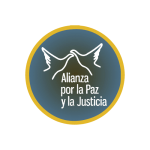
As violence rates in Honduras soar, ASJ also forms the Alliance for Peace and Justice in 2012, a coalition of like-minded groups pushing for reform in the justice and security sector. These alliances strengthen ASJ’s voice and give us a platform to become a leader for change in Honduras.
In the years to come, ASJ-US and ASJ-Honduras go on to participate in international partnerships for collaboration and mutual growth with groups like the International Oversight Committee (VIIP) and the Faith and Public Integrity Network.
Becoming a Transparency International Chapter
2012
ASJ is chosen as Transparency International's chapter in Honduras, and our staff grows quickly as a result. While ASJ's first office was held in a two-story house converted into an office, we start to outgrow this space. In the course of a few years, the office expands into five more houses on the same block.
Historic Anti-Corruption Agreement
2014
ASJ, the Honduran government, and Transparency International sign a groundbreaking anti-corruption agreement that initiates the process of auditing government institutions. This agreement allowed us to review Honduras’ most important institutions (like the Ministries of Education, Health, and Security) to stop corruption and address institutional inefficiencies. After five years of evaluations, institutions improve by 30% on average.
Transforming the Honduran Police
2016
In an effort to take on the rampant corruption in the Honduran police force, the Honduran government appoints four ASJ leaders to a Police Purge Commission. ASJ begins to purge and transform the national police in Honduras, in the end removing 5,600 corrupt and unqualified officers while also hiring 9,800 newly trained officers. The Police Purge comes to be seen as beyond comparison in Latin America, having successfully implemented reforms that many thought were impossible.
Advocating Internationally
2017
As ASJ takes on the biggest issues facing Honduras, we bring our message to Washington D.C. to advocate for policies that contribute to justice and transparency. ASJ-US facilitates advocacy trips to D.C., where we're able to inform key decision-makers about on the impact of U.S. policy on its Central American neighbor. Over the years, ASJ provides expertise on issues like migration, police corruption, foreign aid, institutional reform, and violence reduction.
Becoming a Global Leader
2019
With the support of ASJ-US, ASJ’s work is recognized globally as a leading model for change at the Paris Peace Forum and the World Justice Challenge. ASJ’s theory of change continues to inspire justice-seekers and Christians around the globe, and ASJ-US hosts civil society groups and international media outlets like the New York Times and the National Immigration Forum in Honduras. ASJ co-founder Kurt Ver Beek co-writes Call for Justice with Nicholas Wolterstorff about the theory and practice of justice.
A New Home
2020
Thanks to the generosity of global supporters, ASJ moves into its new office building – a safe and efficient workspace that allows us to steward our financial resources. The building was inaugurated in 2020, and it is a space designed to foster creativity, partnership, and learning for people from all over the world.
One Name
2021
In February 2021, our two organizations unite under one name and one logo to honor our shared commitment towards creating a more just society. This new name reflects our origins in Honduras, as well as our ever-growing mutual vision for a more just society in Honduras, in the U.S., and around the world.
25th Year Anniversary
Representatives from ASJ Honduras, US, and Canada stated, “For 25 years, the Association for a More Just Society has followed God’s call to love our neighbor and to seek justice. We have worked so that the Hondurans living in the most vulnerable conditions can have access to quality education, healthcare, and safety.”
Looking Ahead
We are excited about where we've been and where we're headed as we continue to seek a more justice society. We invite you to join us in continuing to seek justice together.
Association for a More Just Society - U.S. (ASJ-US)
PO Box 888631, Grand Rapids, MI 49588
| info@asj-us.org | 1 (800) 897-1135
ASJ (formerly known as AJS) changed our name in 2021 to reflect our partnership with Honduras and our Honduran roots. Learn more.



